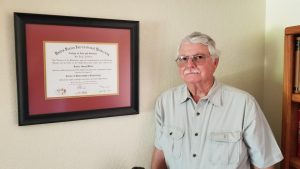Recognize licensure across state borders

Occupational licensing laws—which differ from state to state—create substantial barriers to worker mobility. Licenses often are not recognized across state lines, and even when they are, there can be significant costs—in time and money—to get them recognized. Of course, workers don’t lose their job skills just by moving across state lines, yet licensing laws often treat them as if they do.
Interstate mobility of occupational licensing laws are more important than ever before, especially as workers are rethinking where they live.
To better promote economic opportunity and interstate mobility, the Institute for Justice has co-written model legislation for universal occupational licensing recognition. Inspired by Arizona’s landmark 2019 reform, under the model bill, a state will universally recognize out-of-state licenses and government certifications if the worker is currently licensed by another state and has been licensed for at least one year. In addition, the licensed worker must not have a disqualifying criminal record, not be the subject of a pending investigation, and not have surrendered or had their license revoked due to negligence or intentional misconduct.
Unlike reciprocity agreements and interstate compacts, which exclude workers from nonparticipating states, universal license recognition is less bureaucratic, can be enacted unilaterally, and applies to all states. Moreover, reciprocity agreements and interstate compacts will have the tendency to freeze in place burdensome requirements, which make it harder for states to reform their own laws.
Although an important reform, universal licensing recognition does not address a state’s current licensing requirements, which can be quite burdensome. Check out the “Create jobs for displaced workers through licensure reform” page for more that your state can do.